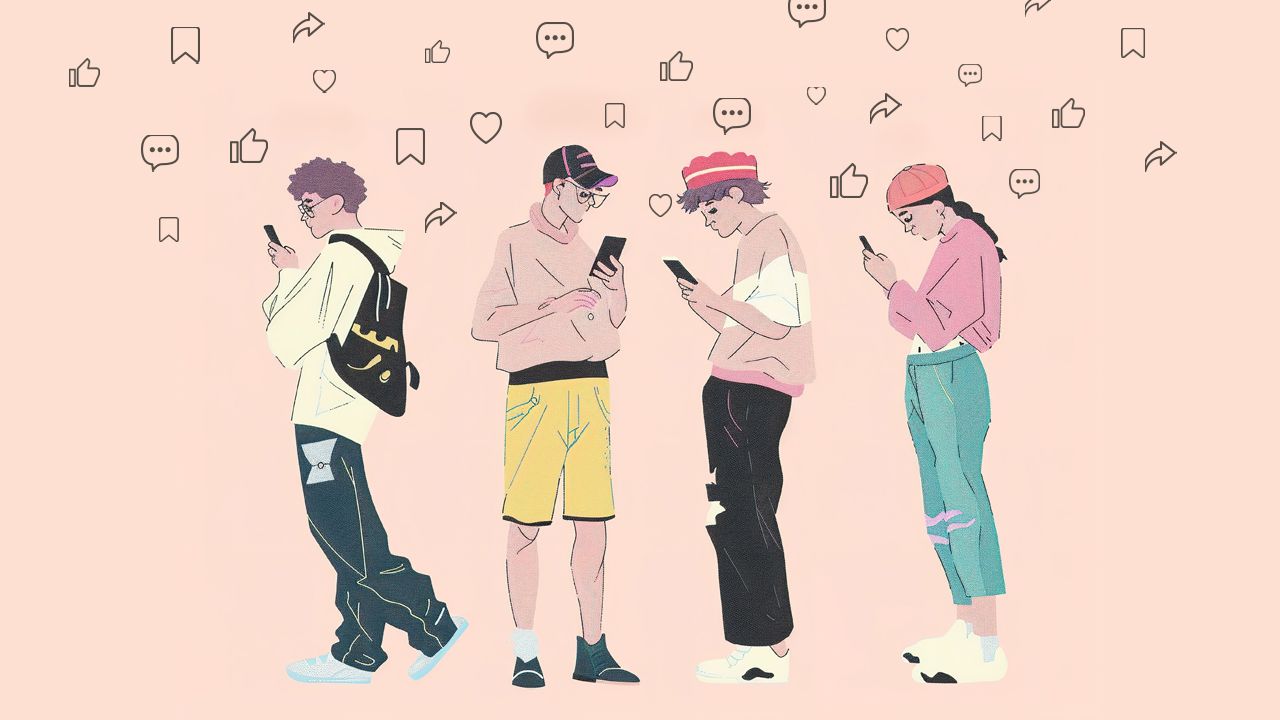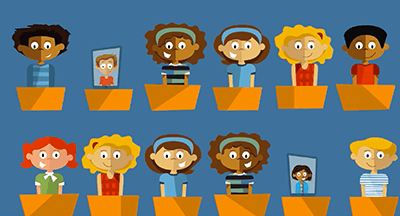
More than just an alphabetical match, empathy is the secret to UX success. Empathy can be taught and practiced!
Though it’s tempting to focus solely on mathematical and scientific goals for STEM students, what if we blended social-emotional learning skills into the mix? After all, empathy is a skill in and of itself—one we can deliberately build and flex—which correlates well with a career in user experience. Alongside the technical skills, let’s build the soft skills students can take with them into any career path.
SEL in K12 schools
Social-emotional learning is a more nebulous facet of K12 schools. If it’s taught, it’s sometimes treated as an add-on, a nice-to-have, and a bonus lesson alongside quote-unquote “real” standards and skills.There are multiple reasons for this. One of the main ones is that it’s difficult to measure SEL. There are no standardized social or emotional tests all students take. There are no finals or quizzes, unless you take a high-level view of the important work students do learning to befriend and tolerate each other. Next, SEL is built up of interpersonal skills, often called soft skills. Plenty of folks relegate this type of skillset to something kids should be learning from their own families (never mind the fact that many parents and families are the ones struggling hardest with providing a healthy social-emotional environment for children).
STE(A)M in K12 schools
On the other hand, STEM is nearly constantly discussed, analyzed, and slotted for improvement in K12 schools. Many of the courses are easily measured, and standardized tests are easy to come by (and even tracked on a national scale). There is general consensus that any skills students build in STEM fields will come in handy in the quote-unquote “real” world. Plus, there’s a push to tack art onto the fantastic four, making it STEAM and legitimizing an otherwise extracurricular pursuit. Anyone who’s seen a cybertruck knows STEM is crying out for the arts to join their ranks.Empathy: The secret to career success?
Even without an official capacity for using a specific SEL skill (empathy), so-called soft skills can make the difference between a student being hired or passed over. These skills, including but not limited to teamwork, cooperation, respect, time management, and more, are hard to train employees in a way more technical skills are much easier learned on the job.Emotional intelligence and its related skills are top of mind for employers, whether they’re actively building them in existing employees or adding them to their recruitment lists. People who are comfortable and experienced in applying empathy may have a leg up in problem-solving: the user, not the creator, of a product or service is the one whose experience matters more. They also make better teammates who focus on collaboration over competition with their peers.
Flexing empathy skills in schools has multiple benefits
Whether or not students are empathy experts upon graduation, practicing empathy has a positive impact on how students interact and behave at school. It’s no secret students are missing the lesson over the years that they’re part of a whole: important contributors to society, not a solo act.It’s nice to think families would emphasize these empathy lessons, but the reality is that most parents weren’t taught how to cultivate emotional intelligence, either. It’s yet another example of students leading within their family units with lessons they learn in school—which isn’t all that new of a concept.
Instilling SEL lessons is one of those pursuits you’ll probably never regret, even if it is hard to measure. The effects are felt rather than counted—but their effect still counts.
Follow-up resource: QUIZ: What's your career of the future?
You're preparing kids for careers we can't conceive of yet—which next-generation role would best suit you? Take the quiz.WHAT'S NEXT FOR YOUR EDTECH? The right combo of tools & support retains staff and serves students better. We'd love to help. Visit skyward.com/get-started to learn more.

|
Erin Werra Blogger, Researcher, and Edvocate |
Erin Werra is a content writer and strategist at Skyward’s Advancing K12 blog. Her writing about K12 edtech, data, security, social-emotional learning, and leadership has appeared in THE Journal, District Administration, eSchool News, and more. She enjoys puzzling over details to make K12 edtech info accessible for all. Outside of edtech, she’s waxing poetic about motherhood, personality traits, and self-growth.




